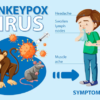Understanding Congenital Heart Defects through the Lens of Ayurveda
Understanding Congenital Heart Defects through the Lens of Ayurveda are structural problems with the heart that are present at birth. They can affect the heart’s walls, valves, and blood vessels, impacting how blood flows through the heart and to the rest of the body. The complexity of these conditions often leaves parents and caregivers searching for answers and effective treatments. While modern medicine offers various surgical and pharmacological interventions, complementary approaches, such as Ayurveda, provide valuable insights and supportive care for managing CHDs.
What Are Congenital Heart Defects?

Congenital heart defects are among the most common birth defects, affecting approximately 1 in 100 to 200 live births. These defects can range from simple conditions that require little to no treatment to complex issues that necessitate multiple surgeries. Common types of CHDs include:
- Atrial Septal Defect (ASD): A hole in the wall between the heart’s upper chambers.
- Ventricular Septal Defect (VSD): A hole in the wall between the heart’s lower chambers.
- Tetralogy of Fallot: A combination of four heart defects affecting normal blood flow.
- Transposition of the Great Arteries: The two main arteries carrying blood out of the heart are reversed.
Ayurvedic Perspective on Health
Ayurveda, an ancient Indian system of medicine, is rooted in the belief that health is a balance of body, mind, and spirit. It emphasizes a holistic approach to well-being, considering factors such as diet, lifestyle, emotional health, and environmental influences.
In Ayurveda, health issues are often understood through the lens of the three doshas: Vata, Pitta, and Kapha. Each dosha represents different physiological and psychological characteristics:
- Vata: Associated with movement and activity, Vata governs bodily functions such as circulation and nerve impulses.
- Pitta: Related to metabolism and transformation, Pitta influences digestion, absorption, and energy production.
- Kapha: Connected with structure and stability, Kapha supports growth and lubrication in the body.
Understanding an individual’s dosha can help tailor treatments to restore balance and promote health.
The Ayurvedic Approach to Congenital Heart Defects
While Ayurveda does not specifically categorize congenital heart defects as seen in modern medicine, it offers a framework for understanding and managing heart health through lifestyle, diet, and herbal remedies. Here’s how Ayurveda can contribute to managing congenital heart defects:
1. Dietary Adjustments
In Ayurveda, diet plays a critical role in maintaining balance and supporting heart health. Foods are classified into different categories based on their qualities (Guna) and their effects on the doshas.
- Heart-Healthy Foods: Incorporating fresh fruits, vegetables, whole grains, and healthy fats can support overall health. Foods rich in omega-3 fatty acids, such as flaxseeds and walnuts, are known to promote cardiovascular health.
- Avoiding Processed Foods: Highly processed foods, sugars, and unhealthy fats can aggravate Kapha and Pitta doshas, potentially leading to inflammation and other health issues.
2. Lifestyle Modifications
A balanced lifestyle is crucial for managing congenital heart defects:
- Regular Exercise: Gentle physical activities like yoga and walking can enhance circulation and strengthen the heart. Specific yoga poses, such as the Fish Pose (Matsyasana) and Bridge Pose (Setu Bandhasana), can support heart function.
- Stress Management: Techniques such as meditation, breathing exercises (Pranayama), and mindfulness can help manage stress, which is vital for heart health.
3. Herbal Remedies
Ayurveda has a rich tradition of using herbs to support heart health:
- Arjuna (Terminalia arjuna): Known for its cardioprotective properties, Arjuna can strengthen the heart muscle and improve circulation.
- Guggulu (Commiphora mukul): This herb is traditionally used to support metabolic functions and may help reduce cholesterol levels, thus benefiting heart health.
- Turmeric (Curcuma longa): With its anti-inflammatory properties, turmeric can support overall cardiovascular health.
4. Panchakarma Detoxification
Panchakarma is a therapeutic detoxification process in Ayurveda. It includes five main treatments aimed at cleansing the body and restoring balance. While specific protocols should be tailored to individual needs, Panchakarma can help improve overall health and support heart function.
5. Emotional and Spiritual Well-Being
Emotional health is paramount in Ayurveda. Understanding the psychological factors that may contribute to physical health is essential. Practices such as meditation, mantra chanting, and engaging in supportive communities can foster emotional resilience and improve overall well-being.
Integrating Ayurveda with Modern Medical Care
While Ayurveda offers valuable insights and supportive measures, it’s crucial to integrate these practices with conventional medical care for congenital heart defects. Here are some tips for families:
- Consult Healthcare Providers: Always discuss any Ayurvedic treatments or lifestyle changes with healthcare providers to ensure they complement existing medical care.
- Holistic Team Approach: Collaborate with a team of healthcare professionals, including cardiologists, nutritionists, and Ayurvedic practitioners, to create a comprehensive care plan.
- Monitoring and Adjustment: Regular follow-ups and adjustments to treatment plans are essential, especially as the child grows and their needs change.
Conclusion
Understanding Congenital Heart Defects through the Lens of Ayurveda present unique challenges, but integrating Ayurveda into the care process can provide a holistic approach to managing these conditions. By emphasizing a balanced diet, lifestyle adjustments, herbal remedies, and emotional well-being, families can support the health of children with CHDs.
While modern medicine is essential for addressing the structural issues of congenital heart defects, Ayurveda offers complementary strategies that can enhance overall health and well-being. This integrative approach ensures a more comprehensive care strategy, fostering resilience and promoting a better quality of life for children and families navigating the complexities of congenital heart defects.
By embracing both Ayurvedic principles and modern medical practices, we can move towards a future where holistic health is within reach for all, particularly for those facing the challenges of congenital heart defects.








Leave a reply